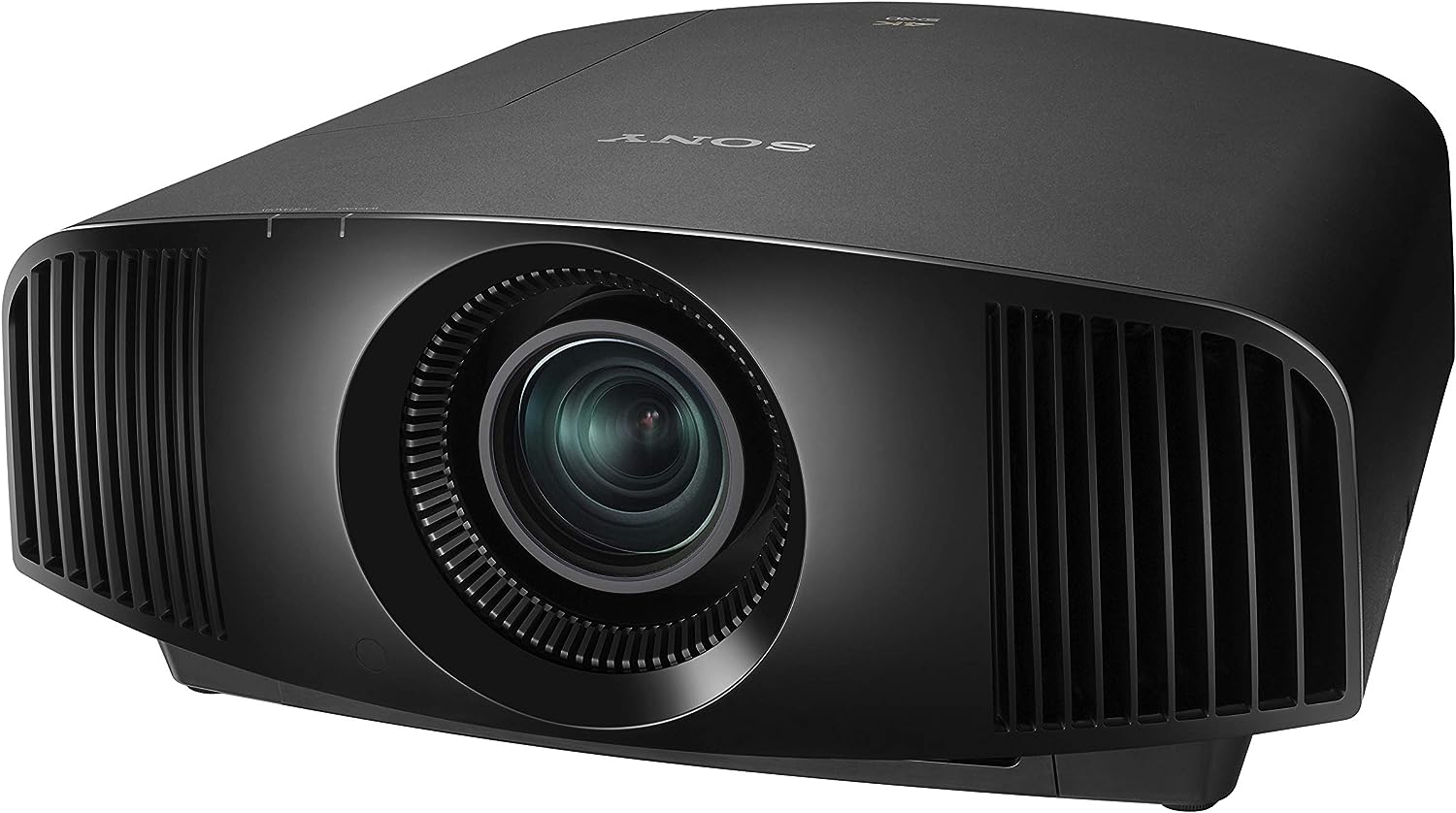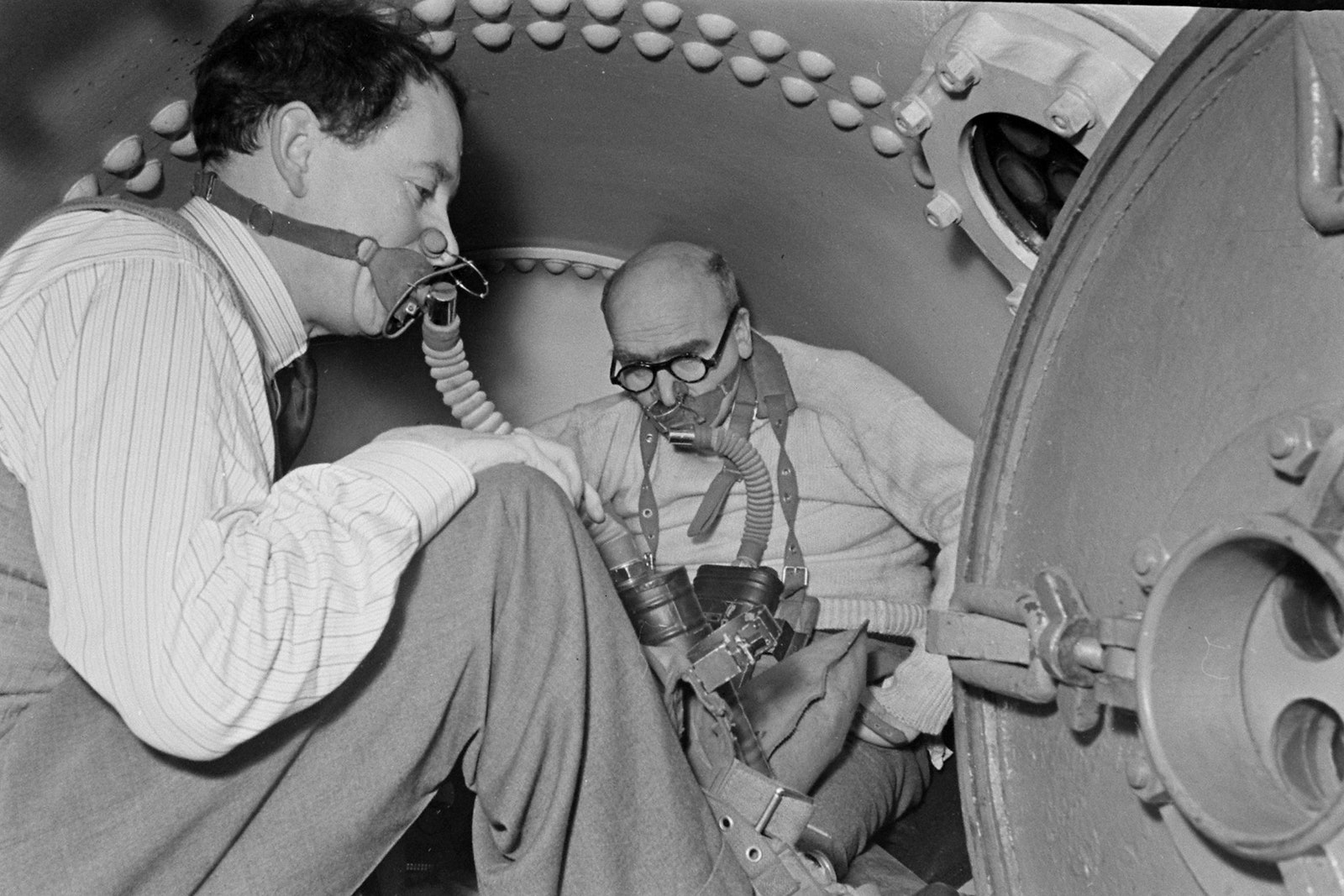Home theater projectors are becoming increasingly popular thanks to their versatility, large screen size capabilities, and additional features. Some even come with smart functionality, allowing you to connect your projector to multiple streaming services.
Turning your home into a cinema experience is now more affordable than ever. Instead of spending thousands of dollars on a large-screen TV, you can save space in your home and enjoy high-quality viewing thanks to the best home theater projectors.
TL;DR – These are the top home theater projectors:
- Sony VPL-XW5000ES
- Epson Home Cinema 5050UB
- BenQ HT2060
- BenQ X3000i
- Epson EpiqVision Ultra LS800
- Optoma HD146X
- Anker Nebula Capsule
If you're not interested in watching movies or TV shows on your projector, you can instead opt for a gaming projector, allowing you to play your favorite games on the big screen. From budget projectors to portable projectors, all the way to high-end projectors that are likely to cost a small fortune, there's something for everyone on this list.
1. Sony VPL-XW5000ES
Best Home Theater Projector
Pros:
- Native UHD 4K images
- Advanced video processing
Cons:
- No HDR10+ compatibility
Despite it’s high price tag, the Sony VPL-XW5000ES laser projector is actually the most affordable projector in the XW line. While it doesn’t support HDR10+, the advanced image processing is absolutely worth the investment. If you’re looking for a projector for your home cinema, this is a game changer, and you won’t be disappointed.
Out of the box you don’t have to intervene much to be happy with the results. But if you do feel the need to tweak the image, there are so many options available. Sporting Sony’s new Wide Dynamic Range optics, the projector can achieve 95% DCI-P3 gamut. If you value image quality, quiet performance, and UHD 4K images, splashing out on the Sony VPL-XW5000ES will change your whole home cinema experience.
2. Epson Home Cinema 5050UB
Best 4K Projector
Pros:
- Excellent image quality
- Motorized lens
Cons:
- A little noisy
The Epson Home Cinema 5050UB is a solid 4K projector that produces excellent image quality without costing as much as something like Sony’s XW range. It’s HDR compatible, 3D compatible, has a motorized lens, and boasts 2,600 lumens. The motorized lens is capable of ±96.3% vertical and ±47.1% horizontal movement, making it a great all-round projector for most homes.
If you have the money to spend on the Epson Home Cinema 5050UB, you’ll get a great home theater projector that’s going to wow your friends and family. Of course, there are a few downsides, namely the low lamp life and the fact it’s not the quietest projector around. But these shouldn’t be a deal breaker because it’s a step in the right direction of more expensive projectors that offer more features.
3. BenQ HT2060
Best 1080p Projector
Pros:
- Excellent color
- Vertical lens shift
Cons:
- Quite expensive for a 1080p projector
The way for a 1080P projector to stand out in a 4K world is by being great at literally everything else. That’s exactly what the BenQ HT2060 does, starting with its ability to display an incredible range of colors. The HT20760 produces DCI-P3 and 98% Rec.709 color coverage performance, meaning there is no shortage of accurate vibrant colors in its repertoire.
It’s not just the color performance, however. The HT2060 has remarkably high contrast for a 1080P projector, and is also compatible with both HDR10 and HLG to help portray deeper blacks in dark scenes. It even offers low latency to serve as a very capable gaming projector, with a response time of 16.7ms. If it were a 4K projector, the HT2060 would likely be exponentially more expensive. Fortunately, it’s not, making it a great value for those who don’t need the highest resolution available.
4. BenQ X3000i
Best Gaming Projector
Pros:
- 4K resolution
- Multiple video and audio modes for gaming
Cons:
- Assembly required
The BenQ X3000i comes with an Android TV dongle included, however, to ensure this functionality works, you must install it by removing the top panel. Once you get past this, you’ll be able to enjoy the multitude of gaming options this projector has to offer. There are five predefined picture modes; Game Mode comes with three predefined options, including RPG, FPS, and SPG. These are designed to enhance the type of game you’re playing.
Low input lag is a must if you’re looking to purchase a projector for gaming. And BenQ doesn’t let the side down. You can expect 13.7ms (1080P 60Hz), 16.7ms (4K 60Hz), 4.2 ms (1080P 240Hz), and 8.3 ms (1080P 120Hz). Whether you’re hooking up your PS5, Xbox Series X, or another console, there’s no doubt you’ll be pleased with the results, especially at this projector’s price point.
5. Epson EpiqVision Ultra LS800
Best Ultra Short Throw Projector
Pros:
- Very bright picture
- Quiet operation
Cons:
- No Dobly Vision or Dolby Atmos
The home theater projector market is somewhat saturated with ultra short throw (UST) projectors. But that doesn’t mean they’re all worth considering. The EpiqVision Ultra LS800 is one of the best UST projectors around thanks to its incredible brightness, ease of use, and smart features. Epson’s 3LCD display technology means you can easily avoid the rainbow effect while enjoying bright, high-contrast images.
If daytime viewing is important to you, you’ll struggle to find a better UST. And of course, when you do turn the lights down, you’re going to be stunned with the results. If you only have a small area to work with, then the Epson EpiqVision Ultra LS800 probably isn’t the right choice. It sticks to its guns when it comes to its ultra short throw nature, making it very difficult to get a small picture.
6. Optoma HD146X
Best Budget Projector
Pros:
- Affordable
- Bright
Cons:
- Loud fan noise
The Optoma HD146X is the quintessential performance-focused, budget-minded projector. For less than $1,000, you get a 1080P image that’s incredibly bright and filled with impressive detail considering its resolution. It even has features like Enhanced Gaming Mode, which is meant to boost response time, and Dynamic Black technology that intuitively adjusts lamp output to set the stage for better contrast.
It’s not a native 4K projector, or even close to it for that matter. And it doesn’t offer any advanced features like a built-in smart operating system of advanced HDR codecs. But what the HD146X does offer is good, trustworthy performance for an entry-level price tag that’s accessible for most people.
7. Anker Nebula Capsule
Best Portable Projector
Pros:
- Very portable
- Good battery life
Cons:
- Low resolution and brightness
The Anker Nebula Capsule is a drastic pivot from the rest of the projectors on this list. It’s just 480p, not very bright, and is only capable of a screen size up to 100 inches. None of that quite matters in this particular case, however. The Nebula Capsule is an ultra portable option, thanks to its diminutive dimensions, built-in speaker and moderately good battery life (four hours).
Should you rely on the Nebula Capsule for daily viewing? Probably not. But will it work wonders on a camping trip or a backyard movie night? It absolutely will, and it will walk circles around some of the best projectors on this list in the process. At least in terms of how truly easy it is to move around and set up for use.
How To Pick the Best Home Theater Projector
Buying a home theater projector isn’t a small investment. So for this reason, you’ll really need to weigh up what’s important when choosing the best one. First, it’s sensible to set a budget, and understand what’s realistic within each category. Most 1080p projectors are going to set you back anywhere from $500+, and may even exceed $1,000. In most cases, you can find a 4K projector for $1,000+, but you may not get smart functionality or many features at this price range. Realistically, a decent projector for an immersive home cinema experience at the lower price range is going to set you back at least $2,500.
Once you’ve set a budget, you’ll next want look at the projector’s lamps, LEDs, or lasers. Projectors tend to require their lamps to be changed after around 3,000 to 5,000 hours of viewing. Some may exceed this, which is why you should check out what they have to offer.
Depending on where you’re going to house your projector, you need to look at its brightness capabilities. If you go with a projector with 500 lumens, for example, the resulting image will be muddy and soft, even in darker spaces. Projectors should have at least 1,000 lumens to work well for home theater set ups; the brighter they are, the better they’ll perform in bright or low-light situations.
If you’re on a tighter budget, you’ll probably be looking at getting a 1080p or lower resolution projector. If you are comfortable with HD viewing, then this won’t be a problem. But if you’re ready to step up to the world of 4K, you should check to see whether the projector you’re buying offers true 4K resolution, as many projectors will upscale instead.
FAQs
Are Movie Projectors Worth It?
Modern projectors offer far more capabilities than they once did. Now with smart functionality and multiple connectivity options, you can use your projector for more than just watching movies or TV shows. If you want an immersive home theater experience, a projector can offer this.
How Many Lumens Do I Need for a Home Theater Projector?
Most home theater projectors support screen sizes of 120 inches and upwards. If you want to achieve good image quality at this size without ambiend lighting, you should aim for at least 1,500 lumens and above.
Is It Better To Have a TV or a Projector?
Projectors are far more versatile than TVs. And with modern technology, they are capable of delivering high-quality 4K images that rival even the best TVs out there. Instead of cramping up your room with a TV stand, you can opt for a smaller projector that can neatly sit on a bracket.
Nick Woodward is a sportswriter-turned-tech journalist, with bylines at Digital Trends and the like. You can find Nick covering all things A/V tech as a freelance writer at IGN.











